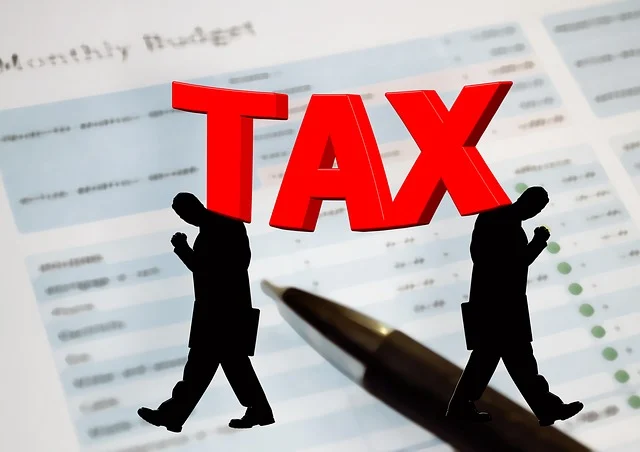How to Apply for Tax Refunds in Greece

Greece has a complex tax system, and navigating it as a foreigner or even a local can be challenging. However, if you’ve overpaid taxes or are eligible for certain deductions, you may be entitled to a tax refund. Whether you’re an expat working in Greece, a tourist who paid VAT on purchases, or a business owner, understanding how to apply for a tax refund is essential. Below is a step-by-step guide to help you through the process:
1. Determine Your Eligibility for a Tax Refund
Before applying for a tax refund, you need to confirm that you’re eligible. Common scenarios where you might qualify for a tax refund in Greece include:
- Overpayment of Income Tax: If you’ve paid more income tax than you owe due to incorrect withholding or other reasons.
- VAT Refunds (Tourists): Non-EU residents can claim VAT refunds on goods purchased in Greece if they meet certain conditions.
- Business Expenses: Self-employed individuals and businesses may be eligible for refunds if they’ve overpaid VAT or have deductible expenses.
- Double Taxation Agreements: If you’re a foreigner paying taxes in Greece but also in another country with which Greece has a double taxation agreement, you may be eligible for a refund.
2. Gather Necessary Documentation
To apply for a tax refund, you’ll need to provide supporting documents. The specific documents required depend on the type of refund you’re seeking:
- For Income Tax Refunds:
- Proof of income (e.g., payslips, employment contracts).
- Tax return forms (E1, E2, etc.) submitted for the relevant year.
- Bank statements showing tax payments.
- Any correspondence from the Greek Tax Authority (AADE) regarding your tax status.
- For VAT Refunds (Tourists):
- Original receipts for purchases made in Greece.
- Passport or ID proving non-EU residency.
- Customs export validation stamp (if applicable).
- Completed VAT refund form (provided by the retailer).
- For Business Refunds:
- Invoices and receipts for business-related expenses.
- VAT declarations (Form 095) submitted to the tax authorities.
- Bank account details for receiving the refund.
3. Submit Your Tax Return
If you’re claiming an income tax refund, you must first submit your annual tax return to the Greek Independent Authority for Public Revenue (AADE) . Here’s how:
- Online Submission:
- Register on the Taxisnet platform, which is the official portal for tax-related matters in Greece.
- Use your Taxisnet credentials to log in and fill out the appropriate tax return form (e.g., E1 for individuals, E2 for rental income, etc.).
- Ensure all income, deductions, and credits are accurately reported.
- Submit the form electronically before the deadline (usually June 30th for the previous fiscal year).
- Paper Submission:
- If you’re unable to file online, you can submit your tax return in person at a local tax office (DOY – Dioikitirio Efchoron ). However, online filing is strongly encouraged.
4. Request the Refund
Once your tax return has been processed, and if you’re owed a refund, you can formally request it. Here’s how:
- Automatic Refunds: In some cases, particularly for income tax, refunds are automatically issued after your tax return is processed. You’ll receive the refund directly into your bank account within a few months.
- Manual Refund Request: If the refund isn’t issued automatically, you may need to submit a formal request for a refund. This can be done:
- Online via Taxisnet: Log in to your account and follow the prompts to request a refund.
- In Person at a Tax Office: Visit your local DOY and submit a written request for a refund, along with supporting documentation.
5. Track the Status of Your Refund
After submitting your request, you can track the status of your refund through the Taxisnet platform. The processing time for tax refunds in Greece can vary significantly, ranging from a few weeks to several months, depending on the complexity of your case and the workload of the tax authorities.
- What to Do If There’s a Delay: If your refund is delayed beyond the expected timeframe, you can contact the AADE or visit your local tax office for clarification. Be prepared to provide additional documentation if requested.
6. VAT Refunds for Tourists
If you’re a non-EU resident and have purchased goods in Greece, you may be eligible for a VAT refund under the Tax-Free Shopping scheme. Here’s how to claim it:
- Make Qualifying Purchases:
- Ensure the retailer participates in the Tax-Free Shopping program.
- Spend a minimum amount (usually €120) in a single transaction.
- Request a Tax-Free Form from the retailer at the time of purchase.
- Get Customs Validation:
- Before leaving Greece, present the purchased goods, receipts, and Tax-Free Form to customs officials at the airport or port.
- They will validate the form, confirming that the goods are being exported.
- Claim the Refund:
- After customs validation, you can claim the VAT refund at a designated refund counter (often located at airports or ports).
- Refunds can be issued in cash, credited to your credit card, or sent via bank transfer, depending on the retailer’s policy.
7. Seek Professional Assistance (If Needed)
Navigating the Greek tax system can be complicated, especially if you’re unfamiliar with local laws or don’t speak Greek. In such cases, hiring a tax consultant or accountant can be beneficial. They can help you:
- Prepare and submit your tax return accurately.
- Identify potential deductions and credits you may have missed.
- Follow up with the tax authorities on your behalf.
8. Appeal If Your Refund Is Denied
If your tax refund request is denied or you believe the amount refunded is incorrect, you have the right to appeal the decision. Here’s how:
- File an Appeal: Submit a formal appeal to the Administrative Court of First Instance (Protodikio Dioikitikis Diadikasias ) within 60 days of receiving the denial notice.
- Provide Evidence: Include all relevant documentation to support your case, such as proof of overpayment or errors in the tax authority’s calculations.
- Legal Representation: Consider hiring a lawyer specializing in tax law to represent you during the appeals process.
9. Be Aware of Deadlines
Timing is crucial when applying for tax refunds in Greece. Missing deadlines can result in lost opportunities to claim refunds. Key deadlines to keep in mind include:
- Tax Return Filing Deadline: Typically June 30th for the previous fiscal year.
- VAT Refund Claims: Must be submitted before leaving Greece and within three months of the purchase date.
- Appeals Deadline: 60 days from the date of the tax authority’s decision.



